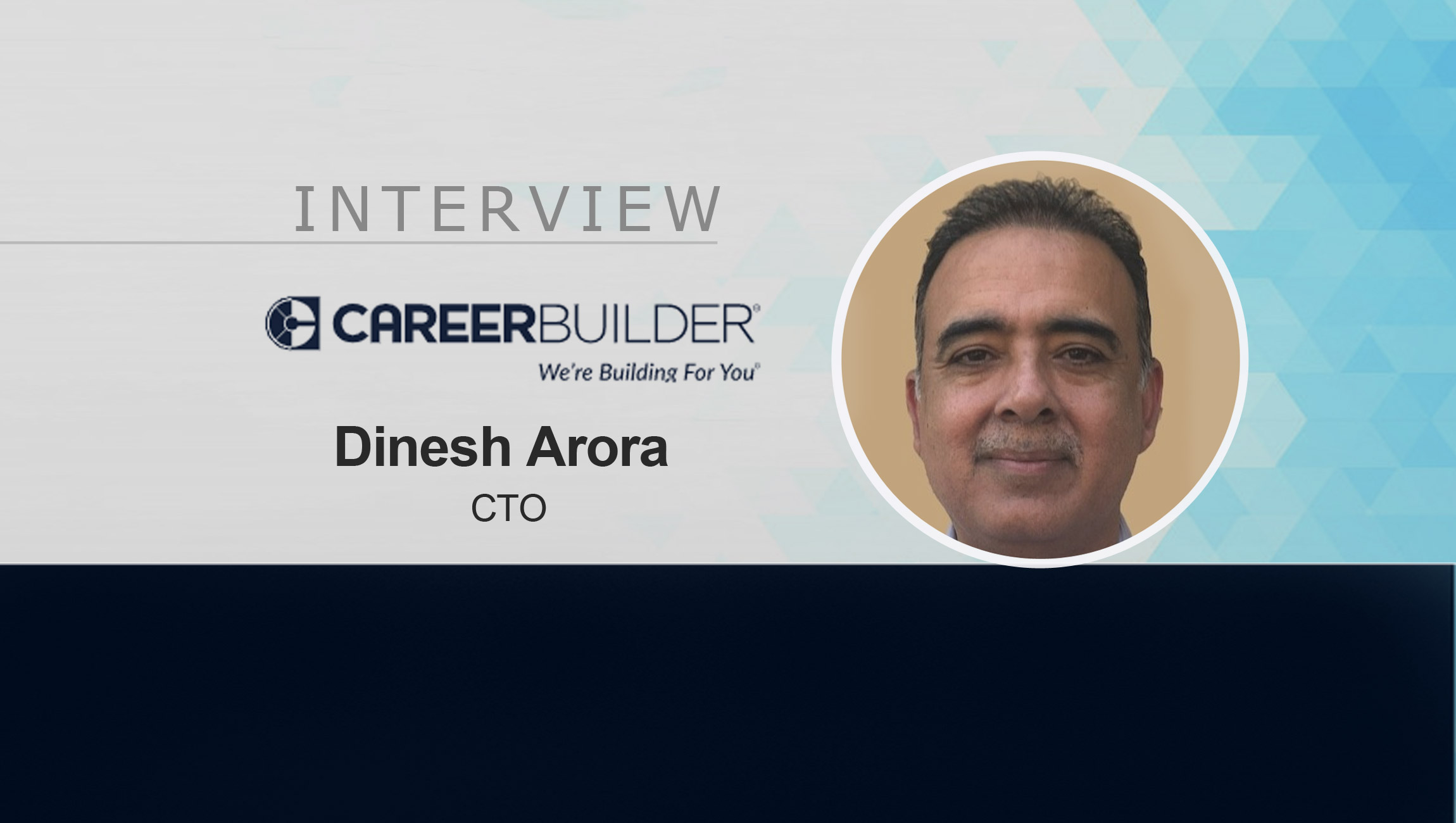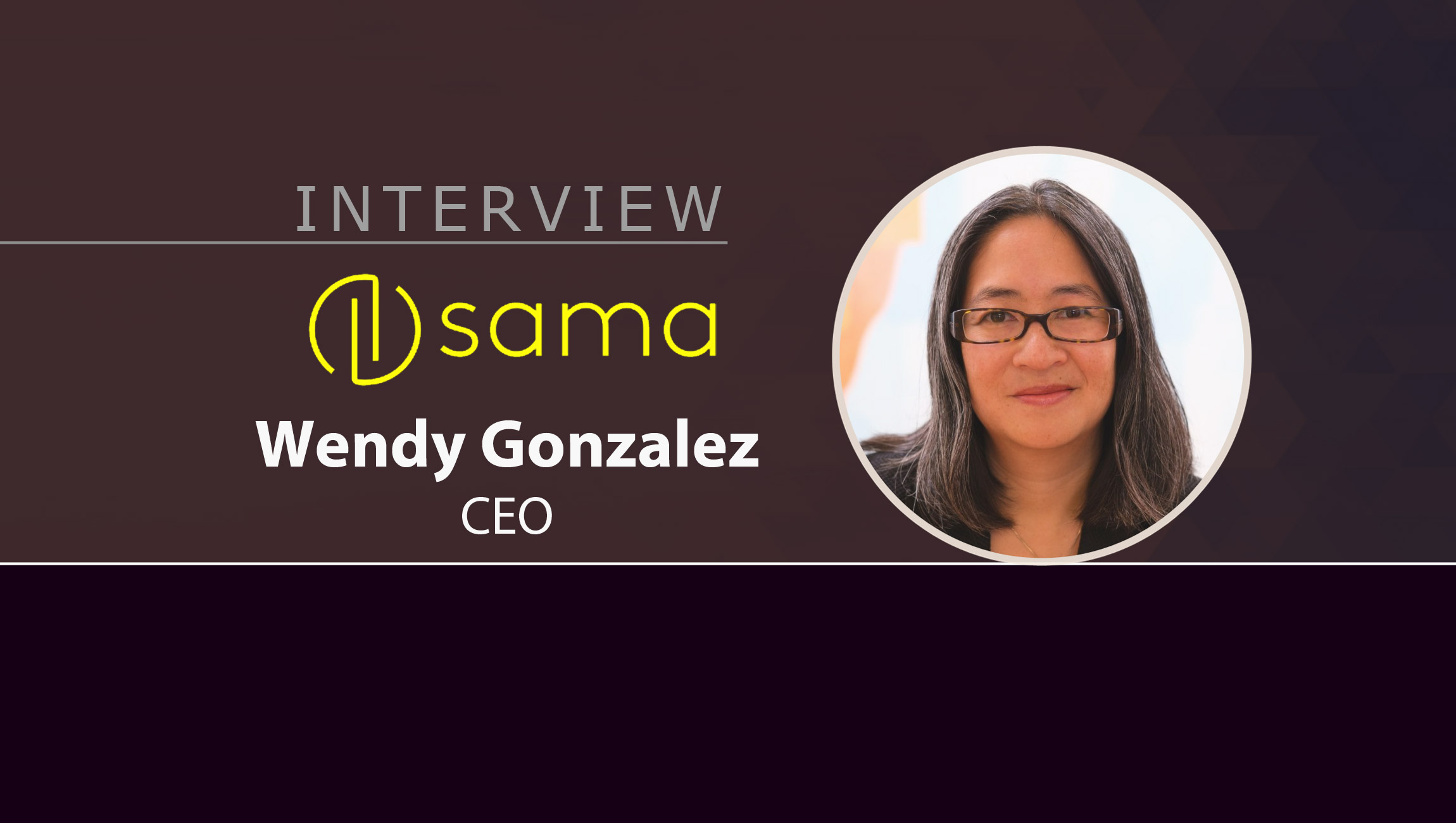Dinesh Arora, CTO at CareerBuilder joins us to talk about the top skills shortages in the tech market and how business leaders including marketers need to align to build stronger global teams for their companies. _____ You might know that CareerBuilder facilitates job hunts and hiring searches by matching ideal candidates with the right open positions, then helping them apply. But our platform goes well beyond the application process. We provide candidates with a wide range of career advice on our blog, and we help write resumes. And using machine learning algorithms, we identify skills gaps between candidates and jobs, then steer those candidates toward training to boost their qualifications. The list goes on. Right now, we’re working to solve a big problem: As the economy continues to recover from the pandemic, many hiring managers struggle to find candidates who meet their job requirements. That’s why we’re developing the next iteration of our skills algorithm. We want to match jobs to candidates based not just on the roles they’ve held in the past, but also on the skills they have now. It’s not just about what you have done; it’s about what you can do. Using AI, we’ve calculated compensation requirements for all relevant geographic areas, helping employers understand the market and helping candidates get fair and competitive salaries. We are revamping how we utilize our vast pool of candidates to get even better performance for jobs posted on our job boards. We are introducing additional AI algorithms to promote jobs via our search and recommendation technology. And finally, we just launched a closed-loop integration with Workday Recruiting. Now, job postings can be advertised on our job boards, and candidates can apply with a single click. These candidates seamlessly flow into Workday, where our customers can see them as they apply. Put simply: We’re taking the friction out of the process. Marketing Technology News: MarTech Interview with Vance Reavie, CEO at JunctionAI Technologies are moving beyond matching jobs and candidates based on titles, roles, and responsibilities alone. Now, we’re working to identify the skills needed to perform a certain job, and then finding candidates who have those skills – both soft and technical. The U.S. has more than 8 million open jobs, but the unemployment rate is still 6%. If there are so many available jobs and so many people out of work, why aren’t those jobs being filled? There are a few basic reasons, and technology can help overcome them all. First, jobs and matched candidates aren’t in the same geographical area. The silver lining of the pandemic is that we’ve learned just how many jobs can be done virtually. With video and communication technology, we can travel hundreds of miles at the speed of a mouse click. Geography is not the limitation it used to be. Second, the available candidates don’t have 100% of the skills the job requires. Well, if the available candidates need new skills, let’s help them learn those skills! With new technologies, we can identify the gaps and connect candidates with training to boost their qualifications. And finally, job candidates need easy access to a list of jobs matching their skills. For example, our CareerBuilder job board integrates with ATS providers like Workday for a seamless flow between systems, which means job seekers can be sure to find a variety of positions that suite their skills and experience. Employers can also find the right people for their teams, easier and faster. Labor shortages in local markets are here to stay. The reality of hiring candidates now is to expect 60% to have the past job titles and work history, with 80% of the skills needed to do the job. With so many challenges, and dozens to hundreds of open roles per candidate, companies will have to work hard to attract talent. We know that 88% of businesses are bringing on candidates based on strong soft skills and then providing training. Before technology can help source candidates, employers will have to increase their brand recognition, upgrade their benefits and improve their work culture. Once a candidate has been hired, it is important that their onboarding process is equally seamless. Technology will help with that, but the non-technological aspects will be even more important. What’s the new employee’s first impression of the team? Do they feel supported in their first work assignment? What’s overall employee morale like? These are the factors that keep employees engaged. Finally, leaders need to evaluate job descriptions and requirements. Do we really need candidates with a minimum of 16 years of education? Does everyone really have to have several years of experience? Could we train a fresh graduate? Bottom line: We should make all efforts to increase the candidate pool. Marketing Technology News: MarTech Interview with Jamie Gier, CMO at Ceros Your first goal should be to retain what you have. Finding a replacement is time consuming and can hurt other employees’ productivity. If an organization has a retention problem, it needs to be addressed. For roles with low longevity that cycle quickly, you may need to account for turnover and continuously hire to stay ahead of it. We should always evaluate our workforce and, when possible, reskill them so they can do a better job, or do another job, instead of losing and replacing them. Similarly, look beyond your local area. Expanding your geographic search will help you reach more candidates. Remote work will expand the workforce across the globe and technology will help break down race and gender barriers. In our tech-based workplace, data privacy will continue to remain a concern. The candidate pool is shrinking and can’t meet demand. That trend will continue. Reskilling will be key. So hire based on skills and potential, rather than degrees and previous experiences. Look beyond your geographical area, use the right HR technologies (like CareerBuilder (haha!) to expand your reach. Marketing Technology News: MarTech Interview with Alexander Rublowsky, EVP Marketing at Controlup
CareerBuilder is a global HR technology company that provides talent acquisition solutions to help employers find, hire and onboard great talent, and helps job seekers build new skills and progressive careers as the modern world of work changes. CareerBuilder has 25 years of experience as a talent company using technology to place people in jobs, and it is the only company with both the technology, through its online platform, and the candidates via its job site, to create a connected end-to-end experience. CareerBuilder operates in the United States, Canada, Europe and Asia and is the largest provider of AI-powered hiring solutions serving the majority of the Fortune 500 across five specialized markets. CareerBuilder is majority-owned by funds managed by affiliates of Apollo Global Management, Inc. and Ontario Teachers’ Pension Plan Board. Dinesh Arora leads product engineering, data science, infrastructure and internal applications teams for CareerBuilder as well as for Broadbean and Workterra. Dinesh has been instrumental in bringing efficiencies to how we build and deploy our products. He also played a key role in establishing our India Development Center helping provide round the clock coverage. Dinesh joined CareerBuilder after spending multiple years in the HCM tech industry, leading development teams at multinational organizations, including Oracle. Dinesh holds a Bachelor of Science from Delhi University and a Master of Business Administration from Birla Institute of Management and Technology.Welcome to this MarTech chat, Dinesh! Tell us more about the CareerBuilder product and its newest features.
We’d love to hear your thoughts on how you are seeing new technologies in general solve critical gaps in the talent acquisition space? Some specific thoughts on sales and marketing talent acquisition as well here?
Talent acquisition with the support of new HR technologies can create seamless experiences up to a point. In what ways do different business heads and business leaders (for example, CMOs) need to align their hiring with core talent acquisition projects of their companies using these kind of technologies to get ahead in the hiring game?
What are some top best practices you have in mind for organizations who always need a steady hiring flow for global offices and multiple departments: tips on optimizing global hiring using centralized technologies?
A few predictions on the future of HR tech?
A few takeaways for business in 2021: top factors they should keep in mind as they plan for the rest of the year, innovate and expand their teams?

MarTech Interview with Dinesh Arora, CTO at CareerBuilder

[vc_tweetmeme]
[vc_tta_tabs][vc_tta_section title=”About CareerBuilder” tab_id=”1544515685282-bf64247e-9d9aeec0-8908″][/vc_tta_section][vc_tta_section tab_id=”1544515685339-cf6c9bcd-6b1aeec0-8908″ title=”About Dinesh“][/vc_tta_section][/vc_tta_tabs]
[vc_tweetmeme]










